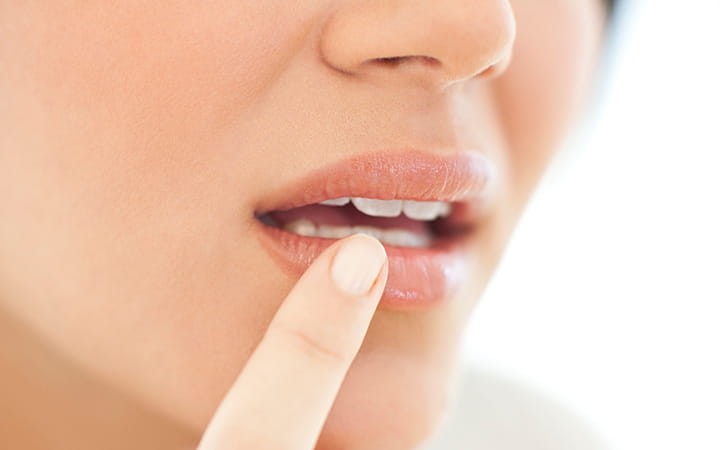Cold Sores: Best Treatments To Ease the Pain
February 02, 2021

Cold sores can be uncomfortable and the changes they cause in appearance can be a source of embarrassment. The good news is a cold sore is not a serious medical condition, and there are things you can do to make them less painful.
These inflamed, fluid-filled blisters are the main symptom of an infection by the herpes simplex 1 virus (HSV-1). They usually form on or around the mouth but can also develop inside the nose or on the chin or cheek.
HSV-1 is highly contagious and fairly common. The U.S. Centers for Disease Control (CDC) says that about 60 percent of U.S. adults ages 45 to 49 have this infection.
The virus is spread through close personal contact such as kissing or sharing a drinking glass, eating utensils, or lip balm with someone who has a cold sore.
The greatest risk of transmission is when there are active sores. However, the virus also can be transmitted from oral or skin surfaces that appear normal and when no symptoms are present. Many HSV-1 infections are acquired during childhood, and the infection is lifelong.
We talked with family medicine physician Barbara Vizy, MD, to learn more about how to treat cold sores.
Prescription Drugs To Treat Cold Sores
Cold sores usually go away without treatment in two to four weeks, but prescription drugs can help, Dr. Vizy says.
“Ask your primary care physician about giving you a prescription for these medicines,” Dr. Vizy says. “If you can purchase these medicines ahead of time, you have them on hand and can start taking them as soon as you feel the tingling or burning sensation that means a breakout is coming.”
Prescription treatments include pills or creams such as:
- Acyclovir (sold under the brand name Zovirax)
- Valacyclovir (sold under the brand name Valtrex)
- Famciclovir
- Penciclovir (sold under the brand name Denavir)
How To Treat Cold Sores at Home
An over-the-counter cold sore ointment called docosanol, sold under the brand name Abreva, may shorten the healing time of a cold sore, Dr. Vizy says. At the first sign of symptoms, apply it to the affected skin using a cotton-tipped swab.
“Other over-the-counter treatments that can help to healing go more quickly have drying agents, such as alcohol. Ask your primary care provider for recommendations,” she says. Lip balms, creams and sunblocks also can help ease the discomfort of a cold sore.
Cold or warm compresses also can help, Dr. Vizy says. A cold, moist cloth can help reduce redness, remove crusting and promote healing. A warm compress can help reduce pain.
Over-the-counter pain relievers such as aspirin, acetaminophen (such as Tylenol) or ibuprofen (such as Advil) also can provide pain relief, she says.
In addition, “Something as simple such as resting and relaxing also can help if your cold sores are triggered by stress,” she says. Try relaxation techniques such as deep-breathing exercises and mediation.
When To See Your Doctor
Make an appointment with your primary care provider if your cold sores are lasting or severe, return often, or are accompanied by eye discomfort, Dr. Vizy says.
Related Links
At University Hospitals, we believe having a primary care provider is essential to your health and well-being. Our primary care physicians and nurses provide comprehensive, compassionate and continuous primary care for patients of all ages. We are committed to building a healthy relationship with you and your family to detect and minimize long-term health issues, or just help you get over that illness that's going around. Need a primary care provider? Find one here.
Tags: Over-the-Counter Drugs


